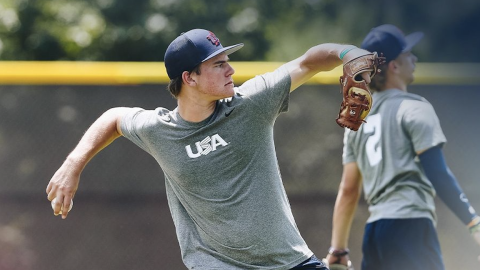If you’re a parent of a young athlete with a promising career ahead of them, getting injured can cause a tremendous amount of emotional and physical stress especially if they’re forced to end their career early. It’s heartbreaking not just for your child, but for your family, teammates, coaches, and everyone who supported your child throughout their journey as well. Adolescence is a crucial phase where the present and future identity is shaped by environment and experience.
In many cases, the personality and mentality that helped your child excel can also make them susceptible to the challenges of no longer participating in competitive sport.
Things to consider when your child is faced with a forced retirement from sport:
- Emotional health – athletes who experience career-ending injuries will often experience the 5 Stages of Grief (denial, anger, bargaining, depression, and acceptance). Grief is also very personal and not always neat or linear. It also doesn’t follow any timelines or schedules. Your child may cry, become angry, withdraw, or feel empty. It’s important to understand this is normal but quite often, your child will need help getting through it.
- Physical fitness and activity can decrease after retirement – your child will not be exercising and training at the same level as pre-injury which can cause other issues.
- Eating behaviors – a higher caloric intake is needed to sustain a young, active athlete. Without that same level of exercise, previous eating habits may not be appropriate and can lead to weight issues.
- Sleep disorders – sleep disturbances may be caused by lingering pain from the injury and/or include a psychological component due to their new reality without sport.
When faced with these potential challenges, it’s important to know that you and your child are not alone. Many other athletes, young and old, are going through it or have gone through it at one time or another.
Here are some positive ways to help your child navigate a career-ending injury:
- Learn about the injury - By educating yourself and your child about the injury, they’ll be less anxious and can focus on the things they can still do. Learn about the diagnosis, determine how long recovery will take, and understand the purpose of the treatments they’re receiving.
- Remain involved with the team – Your child may initially prefer to distance themselves from their teammates after the injury, but eventually they have to reconnect with them again. Believe it or not, their teammates understand their pain and are willing to help them cope. Furthermore, staying involved can give them a way to see sports from a new perspective.
- Use positive self-talk - It’s undeniably difficult to maintain a positive attitude as they deal with an injury but focusing on the negative such as the things they’re missing out on, will only slow the rehabilitation progress. Watch your self-talk as well as theirs, ensuring that you’re both using empowering words. Help them set small and attainable goals and build momentum as they make their way on the road to recovery.
- Find their identity without sports - Before the injury, your child most likely dedicated most of their waking hours to sports, so helping them find their identity without it can be incredibly challenging. Encourage participation in new activities as they may find a new passion that will reward them with a new purpose and a renewed sense of self.
- Utilize available resources on the subject – a great site is sidelinedusa.org. This is a non-profit organization that focuses on “providing resources, connection, and new pursuits.”
Supporting an adolescent after a career ending sport injury is a complex task. It involves a delicate balance between focusing on the injury versus supporting your child as they transition into a new “world” where they are no longer primarily defined by being an athlete. It’s important to understand that it’s not just your child’s routine that will be changed forever. It’s likely yours will be too. But as I mentioned earlier, you’re not alone.
The Stages of Grief: How to Understand Your Feelings (healthline.com)
Coping When Your Injury Has Ended Your Budding Career in Sports - Medical Bulletin (medical-bulletin.com)
The Psychological Burden of Retirement from Sport: Current Sports Medicine Reports (lww.com)
When A Young Athlete Injury Ends Career | Bd Jobs Today
Dealing with loss of identity in youth sports – management of the of a career-ending sport injury - Dansk Sports medicine


